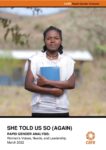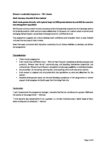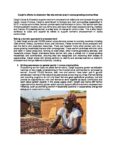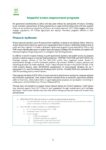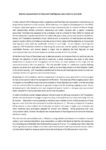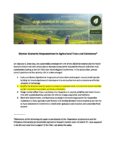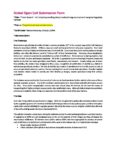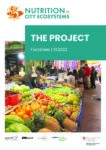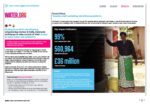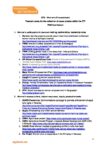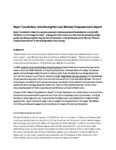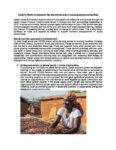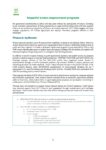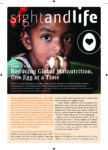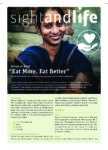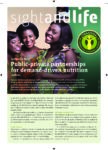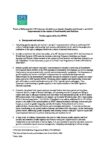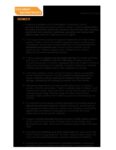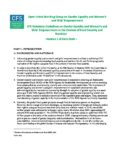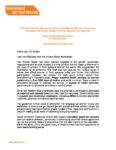
Women’s Empowerment
Background
Despite assuming significant roles and responsibilities, in food systems, women continue to face a systemic disadvantage in accessing productive resources, services, and information (GEWE Scoping Paper, 2020).
Meeting SDG2 (Zero Hunger) and SGD5 (Gender Equality) requires transformative approaches by all actors, and the United Nations Food Systems Summit (UN FSS) identified gender as a cross-cutting lever of change that has the potential to deliver wide-ranging positive change and is relevant across all of the SDGs in addition to being critical to the transformation of food systems in the coming decade.
Advancing gender equality for food security and nutrition continues to gain momentum within the United Nations System and there is a growing consensus around the need for transformative approaches. At the 47th session of the Committee on World Food Security (CFS47), the Terms of Reference for the development of the Voluntary Guidelines on Gender Equality and Women’s and Girls’ Empowerment (GEWGE VGs) were adopted, paving way for the process of identifying the most significant issues to advance gender equality and women’s empowerment in the context of food security and nutrition. The final version of the VGs is set to be adopted at CFS 50 in October 2022.
The PSM is committed to the realization of gender equality and the empowerment of women and is actively engaged in the process of preparing the guidelines, using our experiences, best practices, and innovations to inform and empower the guidelines. We presented our position paper which outlines our viewpoint on the subject, including:
- Promotion of the adoption and implementation of policies that ensure legal equality for women, including rights to land and other productive resources.
- Encouraging women’s capacity to organize themselves and foster women leaders.
- Providing access to proper maternal health services for women and focus particularly on nutrition for the first 1000 days of mother and child.
- Encouraging investors, donors, and governments to focus on supporting women smallholder farmers.
- Education programs should make specific reference to the needs of women, including rural women.
- Gender-sensitive approaches to increase access to agricultural extension services.
- Access to banking services.
- Supporting co-operatives and other enterprises.
- Educational goals for orphans and vulnerable children in developing countries.
In addition to these viewpoints, which were included in the draft guidelines, PSM has provided inputs into subsequent drafts, online consultations, participated in Open-Ended Working Group (OEWG) meetings and in negotiations. On April 7, PSM organized a Gender Roundtable under the topic Business accelerating gender equality and women’s and girls’ empowerment in food systems. The roundtable brought together 120 representatives of Member States, UN agencies, NGOs, academia, and private sector to discuss and showcase business commitments and initiatives that are accelerating action for gender equality under the themes of leadership, entrepreneurship and nutrition. The outcomes of the roundtable went to further strengthen private sector inputs into the negotiations.
The PSM continues to value the multi-stakeholder process which will ensure ownership and greater uptake of the final product.
If you wish to participate in the process, please contact irina@emergingag.com.
Case Studies
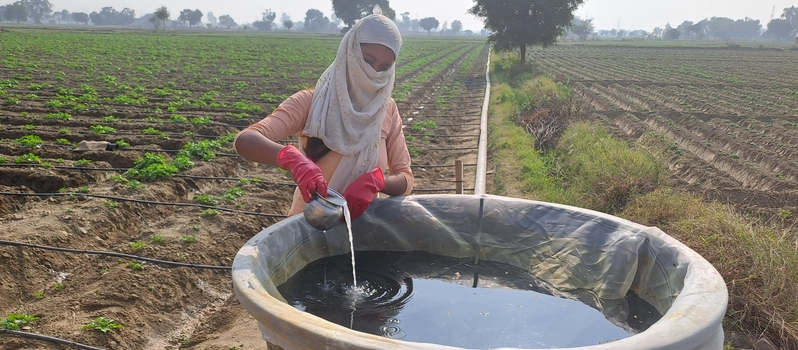
USAID and PepsiCo work together to unlock Women’s Economic Opportunities in India
PepsiCo
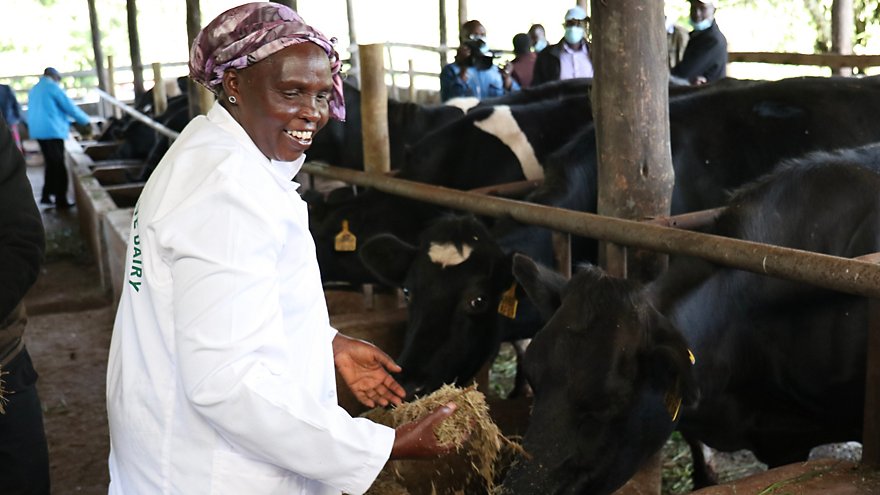
Improving livelihoods in Kenya
Tetra Pak Laval AB

Milk launches new initiative to sponsor female marathon runners
Milk – 26.2 campaign
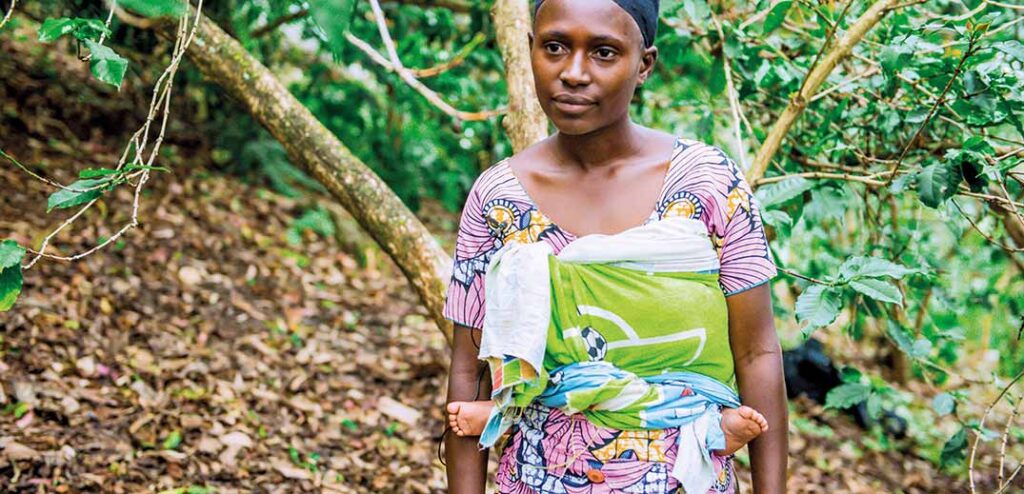
Meet the next-gen female farmers
Nestlé
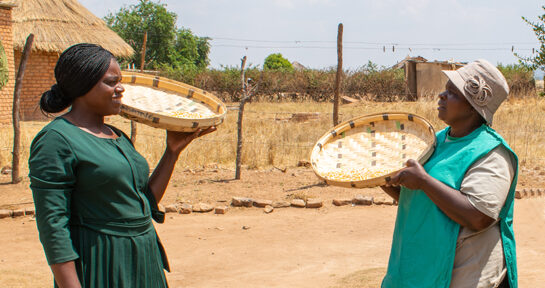
Women-Led Biofortified Food Businesses: Advancing Nutrition and Health
HarvestPlus
-
CARE Case Study – She Told Us So
Download -
Moet Hennessy Case Study – MH Elevate
Download -
Cargill Case Study – Efforts to Champion the Role Women Play in Cocoa-Growing Communities
Download
-
OCP Case Study – Impactful Women Empowerment Programs
Download -
OCP Case Study – Women empowerment for improved food legumes value chains in rural India
In an inclusive and integrated approach, OCP Foundation worked on improving the production and the quality of food legumes by smallholder farmers, and women played a major role in adapting the food legumes to local consumption habits for enhanced food and nutrition security of their households.
Download -
Morination Case Study – Women Economic Empowerment in Agricultural Trade and Commerce
Download
-
Case Study – Fresh Greens – Self Employed Women’s Association
Download -
NICE Case Study – The NICE Project
Download -
Reckitt Case Study – Water.Org
Download -
Women’s Empowerment – Case Studies
Thematic areas for the collection of cases studies within the TTT
Download -
IAFN – Bayer Foundation: Introducing the New Women Empowerment Award – 2022
Bayer Foundation’s vision is to catalyze advances in science and social innovation for a world with “health for all and hunger for none”. A key goal in this mission is to help close the entrepreneurship gender gap through empowering women entrepreneurs in the developing world. The new “Women Empowerment Award” is one building block in this strategy.
Download -
IAFN – Cargill’s Efforts to Champion the Role Women Play in Cocoa-Growing Communities – 2022
Cargill Cocoa & Chocolate supports women’s empowerment holistically and at scale through the Cargill Cocoa Promise, Cargill’s commitment to farmers and their communities established in 2012. In cocoa communities, women provide nearly half the labor on farms. Yet, women earn less of the household’s income, own less of the land, and have much lower access to training, markets, and finance. Empowering women is a key lever of change for communities. This is why Cargill continues to scale and expand its efforts to support women’s empowerment in cocoa communities.
Download -
IAFN – Impactful Women Empowerment Programs – 2022
No agricultural transformation in Africa will take place without the participation of women. Investing in the economic empowerment of these populations is a high-yield investment that will have multiple effects on the continent’s productivity, efficiency, and inclusive growth. OCP Africa engages with these strategic populations for African agriculture and deploys innovative programs tailored to their challenges.
Download
-
PSM – Sight and Life Case Study: Reducing Global Malnutrition One Egg at a Time – 2022
Stunting – inadequate length/height for age – in early childhood has multiple causes. These include inadequate maternal and/or early childhood nutrition, inadequate infant and young child feeding practices, poor environmental health, lack of dietary diversity, and illness. Low intake of animal-source foods (ASFs) rich in high-quality protein and other key nutrients during the complementary feeding period (6–24 months) is a signi cant factor here. Evidence suggests that the consumption of ASFs is associated with improved linear growth. At Sight and Life, we are devoted to increasing egg production and consumption in support of better nutrition for vulnerable populations worldwide. We report here on some egg-citing recent developments.
Download -
PSM – Sight and Life Case Study: Eat More, Eat Better, Sight and Life – 2022
Maternal malnutrition is a major public health problem in India. PLW have higher calorie, protein and micronutrient needs than other women, but calorie intake among PLW in Rajasthan is 40% below doctors’ recommendations. Women are o cially encouraged to “eat a variety of foods and eat more o en than they normally would,” but this advice is difficult to translate into practice.
Download -
PSM – Sight and Life Case Study: OBAASIMA Seal: Public-Private Partnerships for Demand-Driven Nutrition – 2022
In July 2013, a partnership was launched between Sight and Life, Royal DSM N.V., the German Federal Ministry for Economic Cooperation and Development, the Children’s Investment Fund Foundation, the Bill & Melinda Gates Foundation, the Association of Ghanaian Industries (AGI), and the Ghana Standards Authority (GSA). The objective of this partnership is to improve micronutrient intakes of women of reproductive age in Ghana. It resulted in the creation of the OBAASIMA Seal – a market-based approach aimed at addressing micronutrient de ciencies across the food chain, from production to demand creation.
Download
Documents
-
IAFN – Final Version of the TORs Gender approved by OEWG – 2021
Advancing gender equality and women’s and girls’ empowerment is critical to achieving CFS’ vision of ending hunger and ensuring food security and nutrition for all, and for the progressive realization of the right to adequate food in the context of national food security.
Download -
PSM – Gender – Position Paper – 2021
Download -
IAFN – CFS OEWG Gender Zero Draft Version 1 – 2021
Advancing gender equality and women’s and girls’ empowerment is critical to achieving CFS’ vision of ending hunger and ensuring food security and nutrition for all, and for the progressive realization of the right to adequate food in the context of national food security.
Download -
PSM – Comments for OEWG 12 February – 2022
The Private Sector has been actively engaged in the gender workstream negotiations and we look forward to a final product that will make a difference in the lives of women in food systems around the world.
Download

